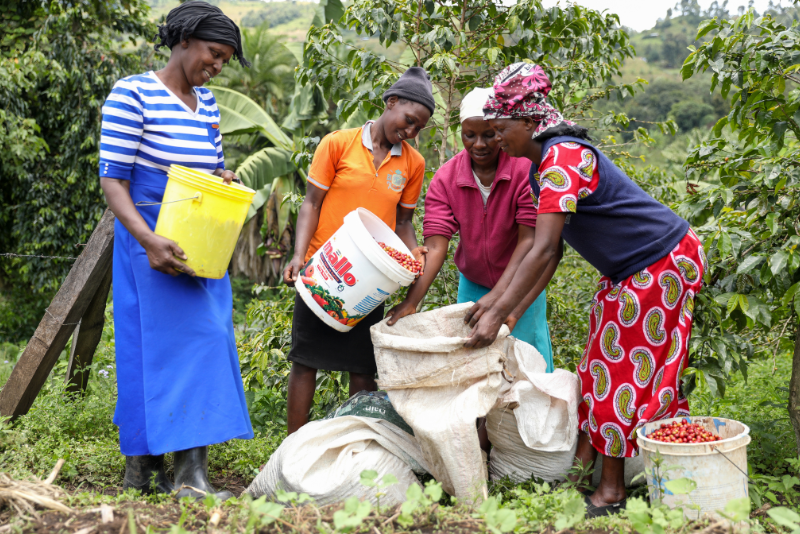
Women to the front: how Fairtrade addresses gender equity
Read more
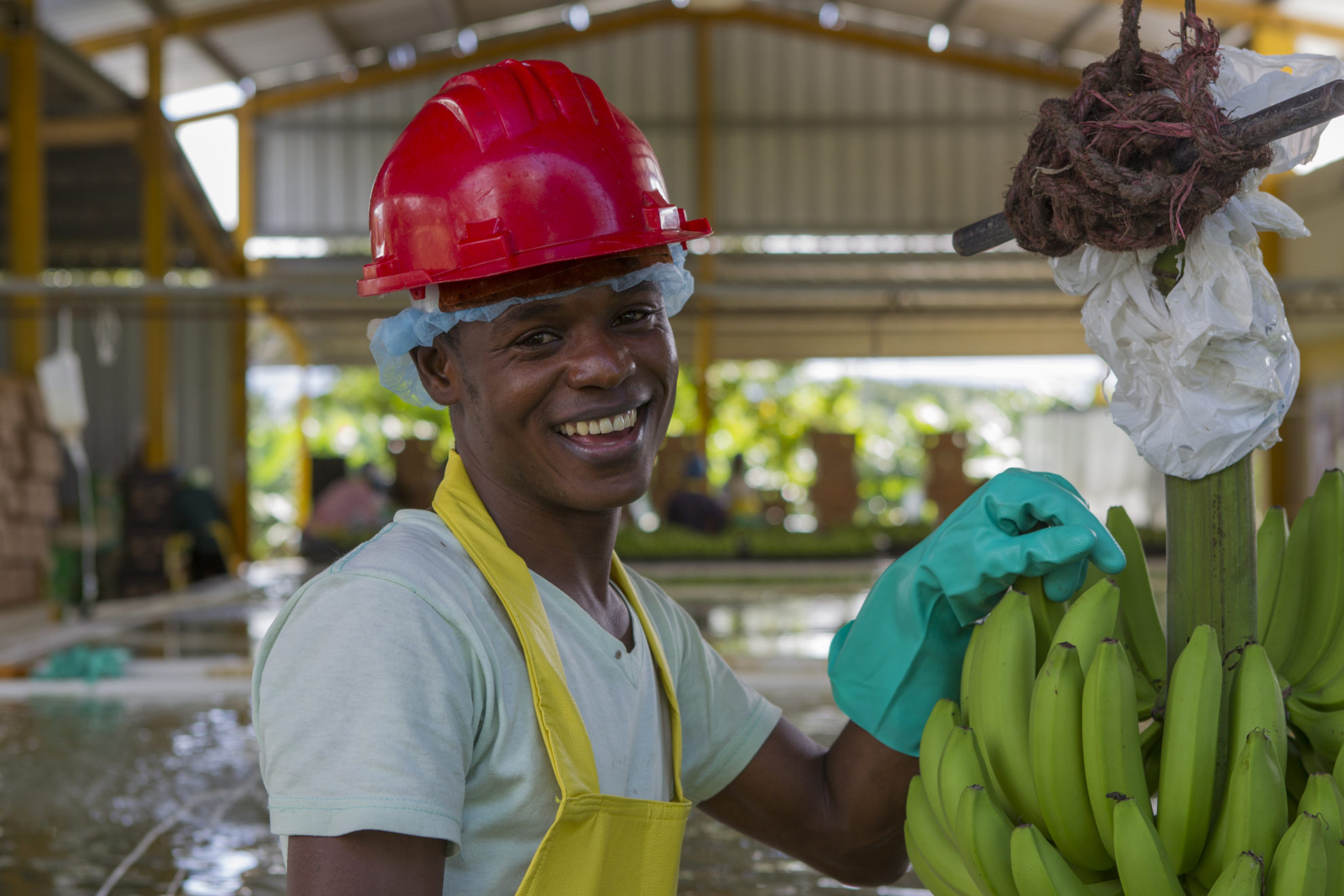
Intense competition amongst retailers means the price of bananas in Canada is unreasonably low. The result for farmers and workers in the banana sector is that relying on bananas for a living is becoming unsustainable.
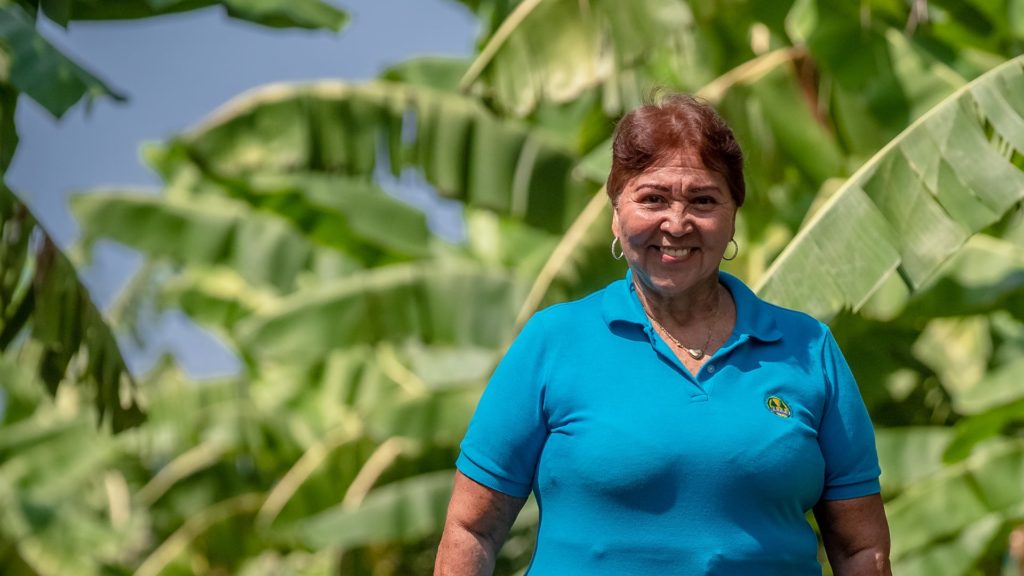
With Fairtrade, we have been able to follow courses and also train the women. We now also have a group of women agricultural entrepreneurs thanks to the help of Fairtrade.
YADIRA OROZCO
BANANA FARM OWNER, COLOMBIA
In Canada, bananas account for 8.4 % of all fresh fruit imports – a value of over half a billion dollars a year.
The banana industry is labour-intensive and demanding. Climate change and plant diseases threaten yields, while large multinationals wield considerable influence in a sector that requires significant infrastructure to harvest and transport the quick-ripening fruits. Retailers often offer deep discounts on bananas, sometimes selling below cost to attract customers. Together, these factors put banana producers in a bind.

Bananas are grown in more than 150 countries, and 105 million tonnes of fruit are produced each year.
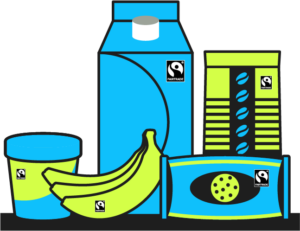
Bananas are one of the most popular fruits in the world and a major export that forms the cornerstone of many countries’ economies.

The UN Food & Agriculture Organization states that bananas are among the most produced and consumed foods globally. However, production of this scale has devastating impacts on the environment and the humans that produce them.
Fairtrade banana producers are paid a Fairtrade Minimum Price that acts as a crucial safety net for producers and a way to build their resilience amid market fluctuations. Fairtrade reviews this price regularly, in consultation with producers and traders.
Small-scale banana farmers and plantation workers also receive a Fairtrade Premium – an extra sum of money that farmers and workers invest in business or community projects of their choice. Banana workers have often used the Premium to improve their housing, build schools and clinics, or offer other benefits they see a need for.
For smallholder farms, Fairtrade supports these banana growers to improve their income and their bargaining position in banana supply chains that are often dominated by larger entities.
The Fairtrade Standards are designed to improve employment conditions and protect the rights of workers in the large plantations where the majority of export bananas are grown.
The Fairtrade Base Wage, which came into effect on 1 July 2021, is a significant step towards a living wage for thousands of banana plantation workers worldwide, with plantations also required to negotiate a plan to progress to a full living wage. Businesses can pay a living wage differential to close the gap to a living wage further.

We’re proud to work with Canadian companies who choose to source Fairtrade. Now you can support your local brands dedicated to making trade fair by shopping Fairtrade local.
Fairtrade can make a real difference for farmers and workers, their families, and their wider communities.
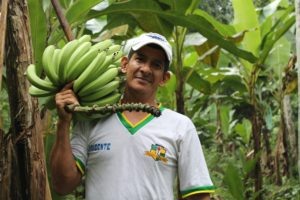
The fourteen banana farmers who took that leap of faith in 1998 set their future in motion. They came together as a collective to build a democratically-run organisation with access to the international market. Today, ASOGUABO is a farmer-run co-operative, representing 350 small-scale banana farmers.
Read more about the cooperative, the impact of Fairtrade Premium investments, and farmer stories
Learn more with these recent stories about Fairtrade bananas: